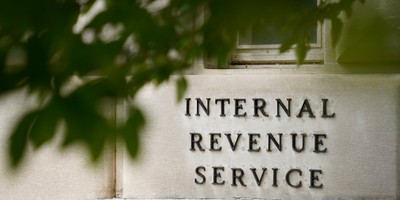The credit agency S&P intervened in the showdown between the GOP and the GOP today to remind participants that the issue is debt, not the debt ceiling.
Standard & Poor’s President Deven Sharma appeared before a House subcommittee overseeing credit agency ratings and had this to say:
"The more important issue is really the long-term growth rate of the debt … as well as the deficit," Sharma told a House Financial Services subcommittee according to the LA Times.
The head of the rating agency said they S&P thought that the U.S would not default on its debts. But he also reminded everyone that even if the country gets clear of the debt ceiling issue, a credit downgrade, which could cost the country hundreds of billions of dollars annually in interest payments, is all but assured without at least a $400 billion per year cut almost immediately.
Even then Sharma emphasized that he could not guarantee that any proposal would save the country from a downgrade until S&P was able to review after it had passed into law.
On June 24th I wrote that the U.S. would have to cut $500 billion in spending immediately just to avoid swamping the sovereign debt market and risking a global sovereign debt crisis. The world is bumping up against a limited amount of debt that it can carry without radically debasing currencies, which would cause rapid, high inflation world wide.
While S&P struggles with the size of the U.S. debt relative to the country’s GDP, of more concern is whether there is enough money to finance the world’s governments. The U.S. under the Federal Reserve Bank has been the largest buyer of Treasuries in recent months, just completing a $600 billion bond purchase known as quantitative easing.
Recommended
One Wall Street source has told me that he believes that in the event of a debt ceiling deal not being agreed to by the president and Congress that the Federal Reserve will stand in as the buyer of record on maturing Treasuries, therefore taking care of principal payments. The Treasury Department would then presumably only have to pay interest on the debt.
About $30 billion in Treasuries matures every week, with another $28 billion, more or less, needed to finance the deficit. Theoretically, the Fed purchase would act in the same way that quantitative easing would work, providing liquidity. But really, it would just be replacing the normal liquidity the government provides in making good on maturing government securities.
The option lends itself to important consideration like what exactly does the Federal Reserve’s relationship with the government as acting “independent within the government” mean?
Does it mean the Federal Reserve Bank has the ability to buy Treasuries and forgive the debt if so instructed by the Federal government? Or could they do it just of their own volition because they are really good guys? Could they use the "within the government" phrase to count it as both an asset and a liability to the government?
If, as economists sometimes say, deficits don't matter because it's money we borrow from oursleves that doesn't have to be paid back, this would be the ulitmate test.
Although the Fed chief Bernanke technically reports to Congress, he and Obama seems to be following similar fiscal policies.
As far fetched as it may seem, politicians have already gone to desperate measures in order to avoid taking responsibility for the debt mess the country is in.
And nothing would surprise me now as debt turns to desperation.
See today's top stories from Townhall Finance:
| Larry Kudlow | A Downgrade Is Serious Business |
| John Ransom | Will Bernanke Bail Out Obama on Debt? |
| Mike Shedlock | Investors Vote No in Europe |
| Gil Morales and Chris Kacher | Long Term: Stocks and Commodities Up, Dollar Down, Bonds Down |
| Bob Goldman | Arriving Now -- Your Next Job |
| J. T. Young | Taking Credit and Ducking Blame |
| Marita Noon | Increase Revenues = Better Economy Not Higher Taxes |
| Bill Tatro | Free Markets No So Free |
| Lincoln Brown | Shale Oil Works in Estonia...Yes, Estonia |
| Email Ransom | thfinance@mail.com |
| http://www.facebook.com/bamransom | |
| http://twitter.com/#!/bamransom |

























Join the conversation as a VIP Member